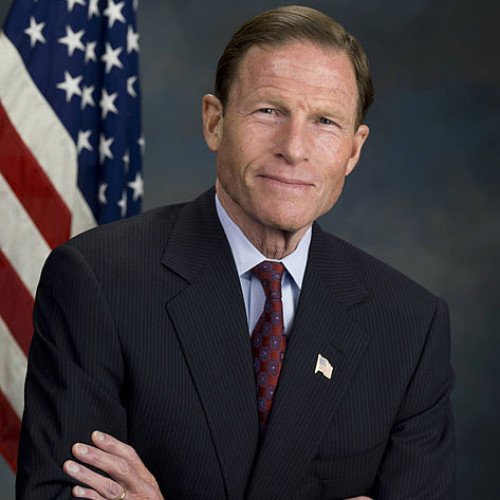Jimmy Carter VS Richard Blumenthal

Jimmy Carter
James Earl Carter Jr. (born October 1, 1924) is an American politician and philanthropist who served as the 39th president of the United States from 1977 to 1981. A member of the Democratic Party, he previously served as a Georgia State Senator from 1963 to 1967 and as the 76th governor of Georgia from 1971 to 1975. Since leaving the presidency, Carter has remained engaged in political and social projects as a private citizen. In 2002, he was awarded the Nobel Peace Prize for his work in co-founding the Carter Center. Raised in Plains, Georgia, Carter graduated from the United States Naval Academy in 1946 with a Bachelor of Science degree and joined the United States Navy, where he served on submarines. After the death of his father in 1953, Carter left his naval career and returned home to Georgia to take up the reins of his family's peanut-growing business. Carter inherited comparatively little due to his father's forgiveness of debts and the division of the estate among the children. Nevertheless, his ambition to expand and grow the Carters' peanut business was fulfilled. During this period, Carter was motivated to oppose the political climate of racial segregation and support the growing civil rights movement. He became an activist within the Democratic Party. From 1963 to 1967, Carter served in the Georgia State Senate, and in 1970, he was elected as Governor of Georgia, defeating former Governor Carl Sanders in the Democratic primary on an anti-segregation platform advocating affirmative action for ethnic minorities. Carter remained as governor until 1975. Despite being a dark-horse candidate who was little known outside of Georgia at the start of the campaign, Carter won the 1976 Democratic presidential nomination. In the general election, Carter ran as an outsider and narrowly defeated incumbent Republican President Gerald Ford. On his second day in office, Carter pardoned all the Vietnam War draft evaders by issuing Proclamation 4483. During Carter's term as president, two new cabinet-level departments, the Department of Energy and the Department of Education, were established. He established a national energy policy that included conservation, price control, and new technology. In foreign affairs, Carter pursued the Camp David Accords, the Panama Canal Treaties, the second round of Strategic Arms Limitation Talks (SALT II), and the return of the Panama Canal Zone to Panama. On the economic front, he confronted stagflation, a persistent combination of high inflation, high unemployment and slow growth. The end of his presidential tenure was marked by the 1979–1981 Iran hostage crisis, the 1979 energy crisis, the Three Mile Island nuclear accident, and the Soviet invasion of Afghanistan. In response to the invasion, Carter escalated the Cold War when he ended détente, imposed a grain embargo against the Soviets, enunciated the Carter Doctrine, and led a 1980 Summer Olympics boycott in Moscow. In 1980, Carter faced a challenge from Senator Ted Kennedy in the primaries, but he won re-nomination at the 1980 Democratic National Convention. Carter lost the general election to Republican nominee Ronald Reagan in an electoral landslide. He is the only president in American history to serve a full term of office and never appoint a justice to the Supreme Court. Polls of historians and political scientists usually rank Carter as a below-average president. Carter's activities since leaving the presidency have been viewed more favorably than his presidency itself. In 1982, Carter established the Carter Center to promote and expand human rights. He has traveled extensively to conduct peace negotiations, monitor elections, and advance disease prevention and eradication in developing nations. Carter is considered a key figure in the Habitat for Humanity charity. He has written over 30 books, ranging from political memoirs to poetry, while continuing to actively comment on ongoing American and global affairs such as the Israeli-Palestinian conflict.
Statistics for this Xoptio

Richard Blumenthal
Richard Blumenthal (; born February 13, 1946) is an American attorney and politician currently serving as the senior United States Senator from Connecticut, a seat to which he was first elected in 2010. A member of the Democratic Party, he is ranked as one of the wealthiest members of the Senate, with a net worth of over $100 million. Previously, he served as Attorney General of Connecticut from 1991 to 2011. Born in Brooklyn, New York, Blumenthal attended Riverdale Country School, a private school in the Bronx. He graduated from Harvard College, where he was editorial chairman of The Harvard Crimson. He studied for a year at Trinity College, Cambridge, in England before attending Yale Law School, where he was editor-in-chief of the Yale Law Journal. While at Yale, he was a classmate of Bill and Hillary Clinton. From 1970 to 1976, Blumenthal served in the United States Marine Corps Reserve, where he attained the rank of sergeant. After law school, Blumenthal passed the bar and served as administrative assistant and law clerk for several Washington, D.C. figures. From 1977 to 1981, he was United States Attorney for the District of Connecticut. In the early 1980s he worked in private law practice, including serving as volunteer counsel for the NAACP Legal Defense Fund. He first served one term in the Connecticut House of Representatives from 1985 to 1987; in 1986 he was elected to the Connecticut Senate and began service in 1987. He was elected as Attorney General of Connecticut in 1990, and served for twenty years. During this period political observers speculated about him as a contender for Governor of Connecticut, but he never pursued the office. Blumenthal announced his 2010 run for U.S. Senate after incumbent Democratic Sen. Chris Dodd announced his retirement. He faced Linda McMahon, a professional wrestling magnate, in the 2010 election, winning by a 12-point margin with 55 percent of the vote. He was sworn in on January 5, 2011. He was assigned to the Senate Armed Services; Judiciary; Aging; and Health, Education, Labor and Pensions committees. After the retirement of Joe Lieberman in 2013, Blumenthal became senior senator for the state. He won re-election in 2016 with 63.2% of the vote, becoming the first person to receive more than one million votes in a statewide election in Connecticut.